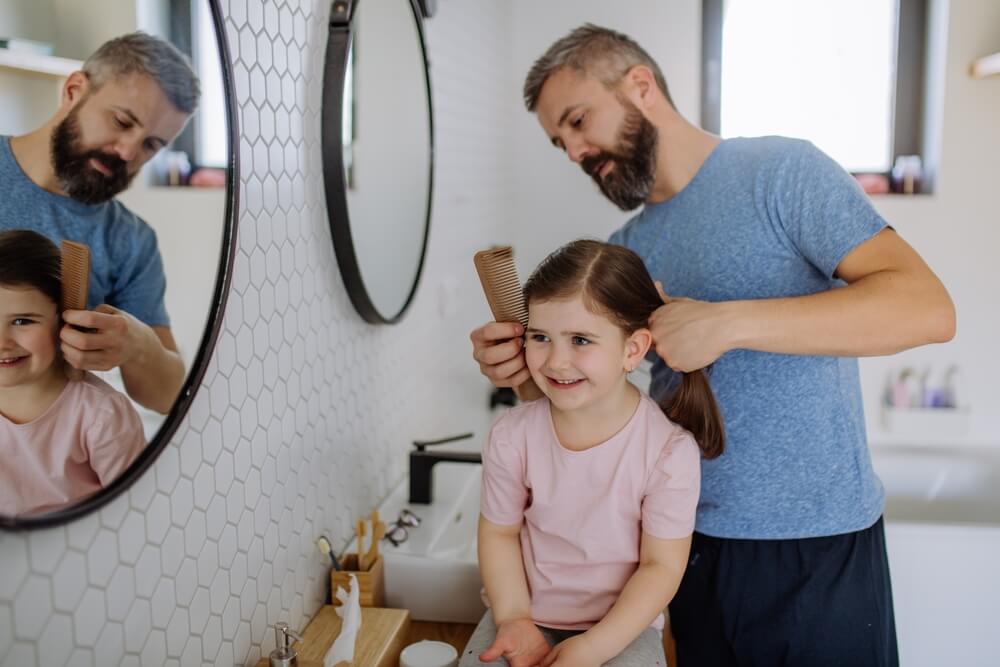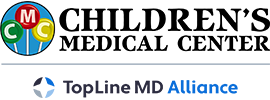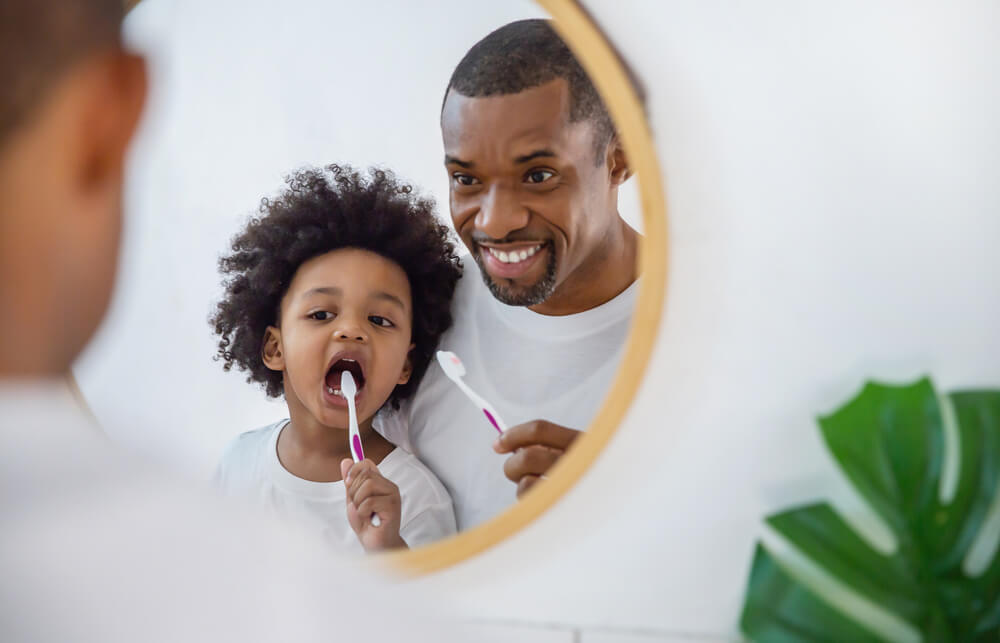As children grow and develop, they must learn the fundamentals of personal hygiene. These skills are crucial for maintaining good health and reducing the risk of disease transmission. Teaching kids about personal hygiene can be a continuous and challenging process, but it’s essential for their well-being.
We at Children’s Medical Center of South Florida understand the problems that may stem from not understanding the importance of personal hygiene. That said, here are ten key personal hygiene habits that you should instill in your children.
If you’d thought children and hygiene don’t mix well, this article will probably help you change your mind.
Children and Hygiene – The Basics: Hand Washing

Hand washing is a fundamental hygiene practice. Children should be taught how to wash their hands thoroughly to prevent the spread of diseases. Follow these steps:
- Use clean, running water.
- Wet both hands.
- Apply soap or handwash liquid.
- Rub hands to create a soapy lather.
- Pay attention to cleaning between fingers and under nails.
- Scrub hands for at least 30 seconds.
- Rinse thoroughly with clean water.
- Dry hands.
Additionally, teach your children when to wash their hands, such as after using the toilet, playing outdoors, touching pets, visiting sick individuals, cleaning the house, sneezing, coughing, before eating with their hands, after eating, and upon returning home from outside. Regular hand washing is crucial for reducing the spread of diseases.
Oral Hygiene
Proper oral hygiene is essential for maintaining healthy teeth and gums. Teach your children these oral hygiene practices:
Brushing Teeth:
- Once first tooth appears, can use a rice size amount of fluoride toothpaste and once over 3 years old, can add a pea size amount of fluoride toothpaste
- Brush teeth at least twice a day.
- Use a child-sized toothbrush with soft bristles.
- Gently clean your child’s gums with a clean cloth during the first 12 months.
- Use a soft toothbrush and water to clean when the first tooth appears.
- Introduce toothpaste when your child is around two years old.
- Teach your child to brush by themselves.
- Emphasize the importance of removing food particles to prevent cavities.
Flossing Teeth:
- Show your children how to use dental floss.
- Use enough floss to wrap it around the fingers.
- Guide them to floss between teeth, holding it in a C-shape.
- Floss all teeth, including the back ones.
Using Mouthwash:
- Mouthwash can kill germs and prevent gum diseases.
- Wait until your child is the appropriate age to use mouthwash.
- Follow the instructions on the mouthwash bottle regarding use.
Encourage Drinking Water:
Drinking an adequate amount of water is essential for hydration and overall health. Ensure your child drinks an appropriate amount of water based on their age.
Toilet Hygiene
Teach your children proper toilet hygiene to prevent the spread of germs. This includes:
- Wiping and washing after using the toilet.
- Teaching them how to flush the toilet.
- Stressing the importance of handwashing after using the bathroom.
It’s helpful to supervise your child during the early stages to ensure they follow these practices correctly.
Cleaning Body Parts
Personal hygiene is the cornerstone of health. Teaching children to clean their body parts thoroughly is essential for overall hygiene. Instruct them to clean various body parts every day, including:
- Inner and outer sides of the ears.
- Proper tongue cleaning to remove food particles.
- Washing the neck and the area underneath.
- Cleaning the skin under the eyelids.
- Washing the palms and under the nails.
- Thoroughly clean the toes, paying attention to the spaces between them.
Teaching these practices from an early age instills lifelong hygiene habits.
Nail Trimming
Nail trimming is crucial to prevent accidental scratching and the spread of germs. Teach your children personal hygiene and how to trim their nails properly:
- Hold the nail cutter and cut the nails.
- Use a nail file to remove sharp edges.
- Emphasize trimming nails straight across without rounded edges.
- Encourage them to wash their hands after trimming their nails.
Ensure your children do not chew or tear their nails with their teeth.
Food Washing Techniques
Teach your children the importance of cleaning fruits, vegetables, and other food items properly to remove contaminants. Follow these food-washing techniques:
- Wash fruits and vegetables before consuming.
- Wash all fruits and vegetables except those with thick peels, like bananas and pineapples.
- Use clean water for washing.
- Consider using a scrub brush or a soft toothbrush for cleaning.
- Rinse thoroughly and dry with a clean towel.
Maintaining proper food hygiene is essential to keep your children safe from various diseases.
Wearing Clean Clothes
Changing clothes regularly is necessary to prevent dirt buildup and germ accumulation. Teach your children these clothing habits:
- Change clothes daily.
- Remove wet clothes and shoes immediately if they get wet in the rain.
- Educate your child on keeping their clothes and shoes clean.
- If your child plays in the dirt or gets dirty, instruct them to change their clothes afterward.
Incorporate these habits into your children’s daily routines to ensure they maintain cleanliness.
Sleeping Hygiene
A good sleep routine is essential for children’s health and well-being. Teach them proper sleep hygiene:
- Help them establish a consistent sleep schedule.
- Ensure they go to bed at the same time every night.
- Babies need 10 to 12 hours of sleep, while school-age kids require 9 to 11 hours.
- Create a calm sleep environment and remove electronic devices before bedtime.
Instruct your children on the importance of getting sufficient sleep.
Sneezing Hygiene
When teaching hygiene, sneezing hygiene is also crucial, especially for toddlers. Teach your children how to sneeze in a way that prevents the spread of germs. Emphasize these sneezing practices:
- Sneeze into a tissue or their elbow.
- Never sneeze into their hands.
- Stress the importance of proper handwashing after sneezing.
Ensure your children practice these behaviors every time they sneeze.
Keeping the House Clean

Maintaining a clean home is crucial for your children’s health as they spend a significant amount of time at home. In a sense, teaching hygiene also involves learning how to keep their surroundings clean. Teach them about house cleaning practices:
- Keep the house neat and clean.
- Show them how to clean their room.
- Teach them how to maintain a clean living room and dining room.
Involve your children in household cleaning by creating a cleaning schedule and assigning age-appropriate responsibilities.
Hygiene For Kids Shouldn’t Be Challenging
In conclusion, teaching personal hygiene to kids is vital for their overall well-being. These habits are not only essential for reducing the transmission of diseases but also for helping your children become well-mannered and self-sufficient individuals. Start early and consistently reinforce these hygiene practices to ensure your children’s health and safety.
That being said, feel free to reach out to our experts today and schedule an appointment.


